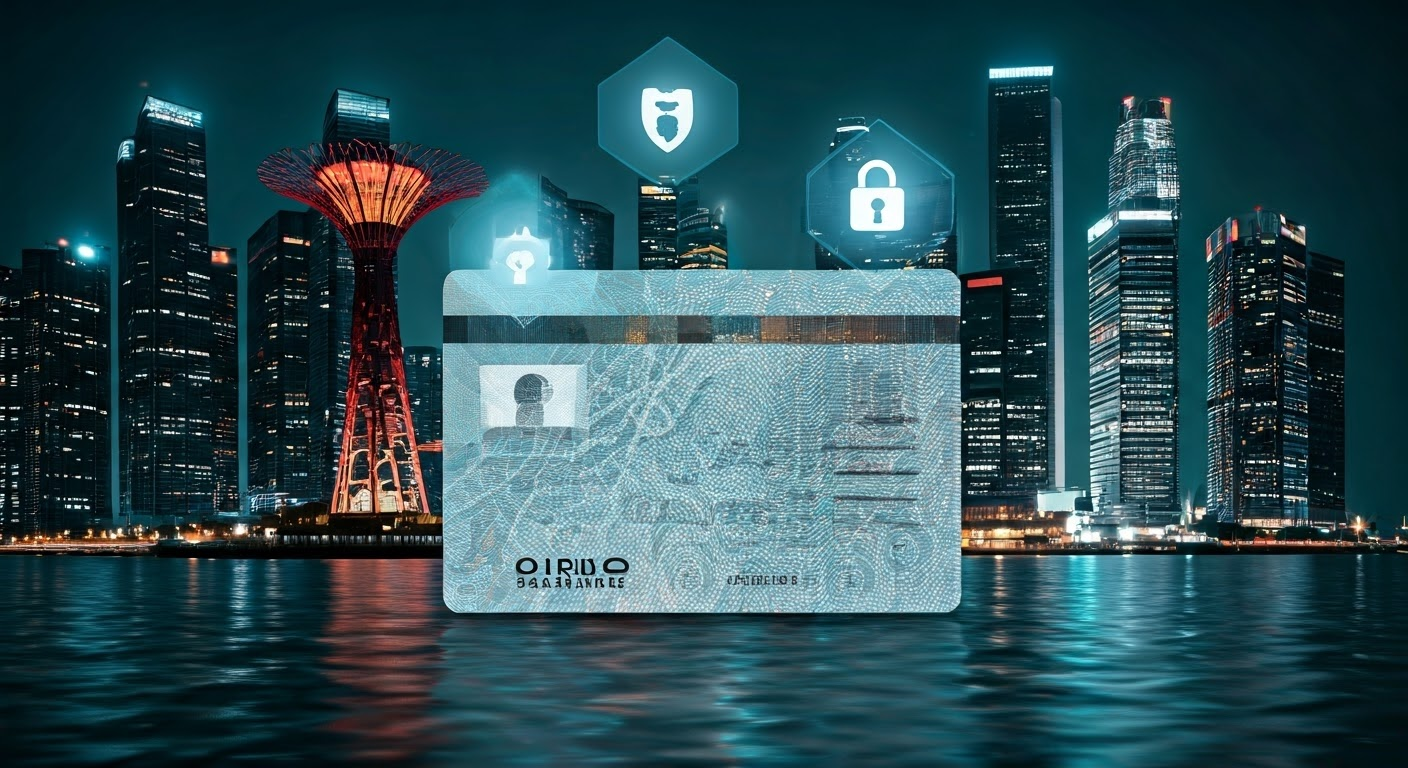
Key Highlights
- Your NRIC is a valuable tool for identity thieves.
- Always be cautious about who you share your NRIC with.
- NRICs should not be a default password.
- Be aware of phishing attempts trying to steal your information.
- Report any suspected compromise of your NRIC immediately.
Other Tool : NRIC Generator | NRIC Validator | Bulk NRIC Generator | Bulk NRIC Validator | NRIC Barcode Generator
Introduction
In Singapore, your NRIC and Singpass are very important for your personal data. As we use digital platforms more, the chances of identity theft go up. This makes it very important for Singaporeans to understand how to protect their NRIC. Knowing the dangers and taking steps to prevent them can greatly reduce your chances of becoming a victim of identity theft.
Understanding the importance of protecting your Singapore NRIC
The National Registration Identity Card (NRIC) is not just an ID; it helps access your personal information. If you get scammed or fall victim to identity theft, it can have serious and lasting effects.
It’s very important to understand how to protect your personal data. Taking care of your NRIC is crucial for keeping your privacy safe, ensuring your financial security, and looking after your overall well-being.
Identifying Potential Vulnerabilities with Your NRIC
Many daily activities need you to share your NRIC, which serves as an important identifier. This includes things like opening a bank account and checking your digital identity online. But using NRIC numbers often makes them easy targets for misuse.
To protect your NRIC, you need to be careful in both physical and digital areas. Pay attention to how your NRIC number and any photocopies are used offline. Also, be cautious about strange requests for your NRIC online.
Common Ways Identity Thieves Target NRIC Information
Identity thieves and scammers use different tactics to get your NRIC information. They often take advantage of normal situations. One common method is phishing. This is when people are tricked into giving their personal information through fake emails or websites. These appear to be real, but they are not.
Another method is physical theft, where someone steals your identity card. This shows why it is important to keep your physical NRIC safe. Be careful not to leave it in places where others can easily get to it.
Finally, weak authentication methods on online platforms can create problems. If you use easy passwords or don’t activate multi-factor authentication through a mobile app, it becomes easier for bad actors to access your accounts. These accounts may have your NRIC details.
The Consequences of NRIC Misuse in Singapore
The misuse of NRIC can have serious effects on both people and Singapore as a whole. For individuals, identity theft can lead to big money losses, lowered credit scores, and trouble getting important services.
On a broader level, when identity theft happens often, it breaks down the trust in digital systems and businesses in the long run. The recent public outcry about NRIC security issues shows the serious concerns about protecting personal data.
To reduce the risks of identity theft, it is important to improve cybersecurity and promote good data protection practices.
What to do if you suspect your NRIC has been compromised
If you think your NRIC has been compromised in a scam, take action quickly to reduce any damage. Report the incident to the police right away. You should also inform the relevant authorities. Get in touch with your bank about any unusual transactions and keep an eye on your accounts for any unwanted activity.
It’s a good idea to contact the Personal Data Protection Commission (PDPC), especially if you think a significant incident has happened. Reporting this helps the authorities keep track of data breaches. It can also help them find weaknesses and improve protective measures for personal data.
How to safeguard your NRIC from being stolen or misused
Protecting your NRIC from theft or misuse means you need to use both old and new methods for safety. Be careful when sharing your NRIC. Only give it out when you must, and make sure the request is real. Use strong and unique passwords. Also, turn on multi-factor authentication if you can.
Check your privacy settings on digital accounts often. Be careful of strange emails or messages asking for personal information. As digital development continues, it is important to stay updated on new threats and use proactive measures as protective measures.
Conclusion
Protecting your Singapore NRIC is very important to stop identity theft. You should know the common ways thieves try to get NRIC information. If you think someone is misusing your NRIC, act fast to protect it. Share your details carefully and know the legal protections that are available. Stay updated to avoid unauthorized use and keep your personal information safe. Your NRIC is important for your identity; make sure to protect it well.
Frequently Asked Questions
How can I safely share my NRIC details?
Only share your NRIC details when it is truly needed and only with trusted people. Ask why your full NRIC is required and think if there are other options. Don’t use your NRIC for authentication or as a default password. Be careful of unexpected requests for sensitive data.
What steps should I take if my NRIC is compromised?
If you think there is a serious issue with your data, tell the police and let your bank know. For possible misuse, reach out to the Personal Data Protection Commission (PDPC). To stay safe, change your passwords, keep an eye on your accounts, and report any strange activity.
Are there specific situations where I must disclose my full NRIC number?
The review of the use of NRIC is ongoing. However, you still need to provide your full NRIC number for some legal and administrative tasks. This includes dealing with certain insurance companies, government agencies, and financial institutions. These places have extra security and legal protections in place.
How does partial NRIC disclosure enhance security?
Partial NRIC disclosure might seem safe, but it can give you a false sense of security. Even just a few alphanumeric characters can be misused because of programs that are easy to find. It’s important to understand that sharing any part of your NRIC comes with risks.
What are the legal protections against unauthorized use of NRIC numbers?
Singapore’s Personal Data Protection Act (PDPA) protects people from unauthorized use of NRIC numbers. Recently, there has been a public outcry about NRIC security. PDPC’s remarks on Dec 14 highlight the serious concerns people have and the need for stronger enforcement of current data protection laws.


